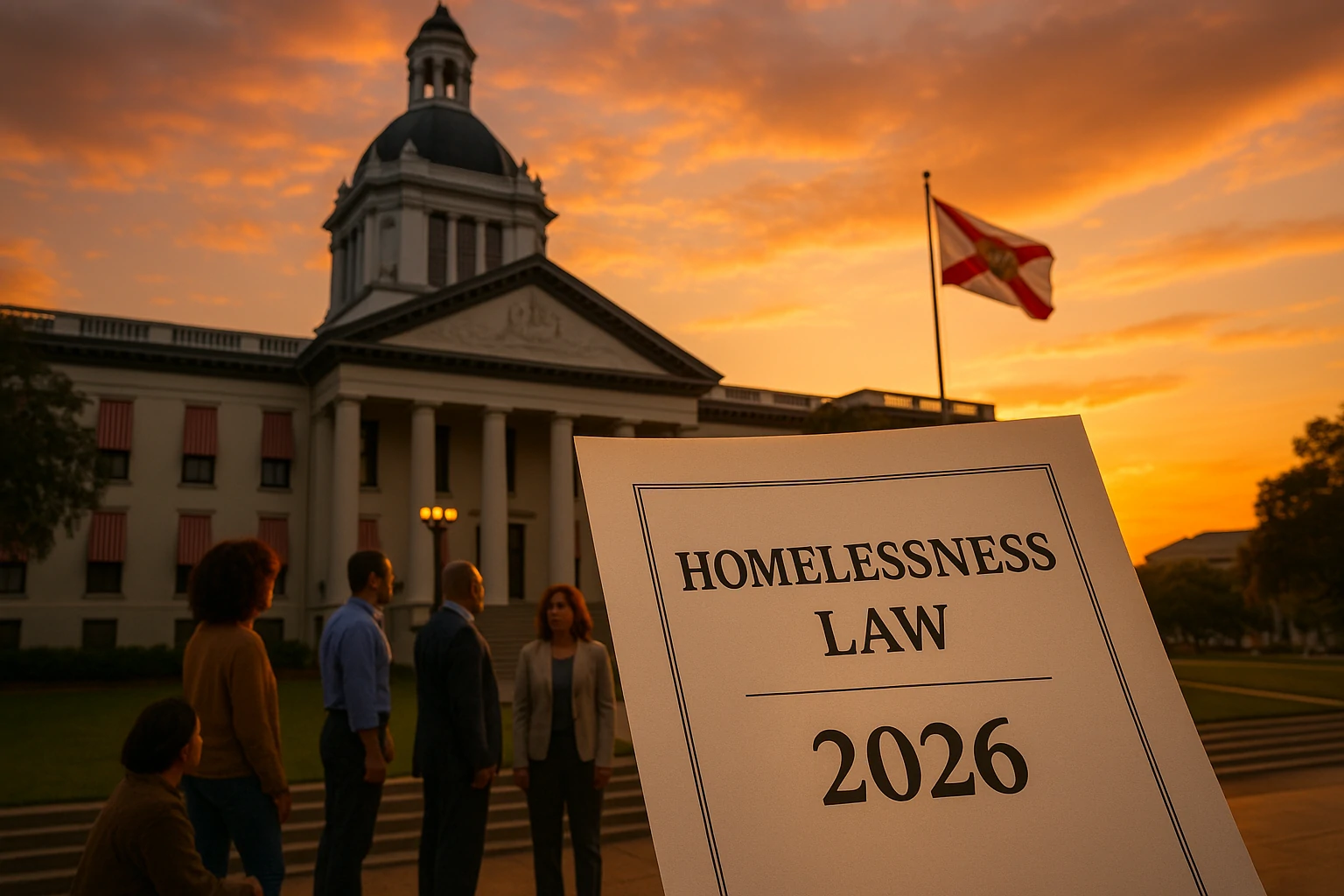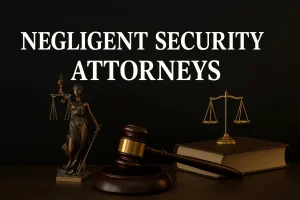Florida passed a new law in 2026 to address homelessness. It gives cities strict rules on how to handle people without homes. The law bans most street camps. It tells local governments to clear public spaces or offer safe shelter.
State leaders say this will improve safety and restore order. They believe streets, parks, and sidewalks should stay open and clean. Supporters see it as a firm step. Critics fear it will lead to arrests, more jail time, and stress on city services.
Homeless camps have grown in many parts of Florida. Some formed near parks and public buildings. Residents raised concerns about safety, trash, and blocked walkways. Local officials said they had no clear tools to respond. This law now changes that.
The law has sparked debate across the state. Some call it fair and needed. Others say it targets the poor. This article breaks down the law, its rules, and what it means for people and cities. These facts help explain the real impact behind the headlines.
What the New Law Says
Florida’s new law blocks most public camping across the state. People cannot sleep overnight on sidewalks, streets, or in parks. Cities that want to allow camps must set up safe areas. These places need toilets, running water, staff, and basic care. Cities must also get state approval before using them.
Police now have the power to remove tents and camps. If someone refuses to leave, officers can arrest them. Cities that fail to enforce the law may face fines. They could also lose control over their local policies if they ignore state rules.
The law tells social service agencies to offer help. This includes mental health care, housing support, and drug treatment. But no one is forced to accept these services. The focus stays on clearing public spaces, not long-term recovery.
Why Florida Created This Law
State leaders say the law responds to growing concerns. They heard complaints from business owners, tourists, and local families. Many said parks no longer felt safe. Others said blocked sidewalks created risks. Cities struggled to manage the issue. Some tried softer rules. Others gave up.
The governor said Florida needed a strong policy. He claimed the state could no longer ignore the problem. He also blamed some local leaders for letting public spaces turn into camps. Supporters of the law agree. They see it as a way to restore order and offer real help.
State lawmakers also pointed to other cities across the country. Some allowed public camping with few rules. Florida officials said they would not follow that path. They promised to balance safety with support. That balance remains under debate.
How the Law Affects Florida Cities
This law applies to every city and town in Florida. Big cities like Miami, Tampa, and Orlando must follow it. So must small towns with fewer resources. No area is exempt. Each local government must now review its own policies. Cities must decide how to respond. Some may build new shelters. Others may change how police work. Each choice brings costs.
Cities can ask the state to approve managed camping zones. But these zones must meet strict rules. They must provide clean water, toilets, and trained staff. Not every city can afford that. The state may also say no. In many cases, the only legal option will be to remove camps.
Some local leaders support the law. Others do not. But all must act. Failure to enforce the rules may lead to state action. This means more oversight and less local control.
What the Law Means for the Homeless
This law changes life for people without a place to live. They can no longer sleep in many public places. Police can now ask them to leave at any time. If they refuse, they face arrest. Many may end up in jail. Others may try to move from place to place.
Not all cities have enough shelter beds. Some shelters turn people away. Others have rules that not everyone can follow. For example, some require ID or clean drug tests. People with mental illness or trauma may struggle with these demands.
The law says cities cannot allow camping unless they offer safe shelters. But shelters take time to build. They cost money. Cities now face hard choices. The result may be more police actions and few places to go.
People who live on the streets often carry what little they own. Moving them creates stress. Many feel pushed out and unheard. They want help, not jail time. Some say the law adds pain instead of relief.
How Services Play a Role
The law tells state and local agencies to offer services. These include mental health care, addiction help, and housing programs. But the law does not require people to accept them. Police may refer someone to a shelter. That person may decline.
Some advocates say this weakens the law’s impact. They argue that care must go beyond offers. Real help takes time, trust, and steady support. Others say forced care does more harm. People need to choose their path. The law tries to stay in the middle.
Local governments must now work with health teams and nonprofits. These groups face new pressure. They must act fast and serve more people. Some worry they do not have the staff or funds. Others are ready to expand.
What Supporters Say About the Law
Supporters call the law a strong step forward. They say public space should serve everyone, not just a few. They believe tents and camps should not take over sidewalks or parks. They argue that letting people live outdoors is not kind. It is dangerous.
Many also see the law as a wake-up call. They think some cities did too little for too long. They support firm rules that come with real help. They believe this mix will bring order and hope.
Some praise the law for pushing cities to act. They say it ends delay. It makes clear demands. It forces change where talk failed. To these voices, the law offers a path to cleaner streets and safer lives.
What Critics Say About the Law
Critics see the law in a very different light. They say it targets people who are already hurting. They argue that arrests and fines will not end homelessness. Instead, they may make it worse.
Some say the law may break federal rules. Courts have ruled that cities cannot punish people with no place to go. Lawsuits may follow. Legal groups are watching closely.
Others worry about hidden costs. Jails may fill up. Hospitals may see more visits. Services may stretch thin. The law may shift problems instead of solving them.
Critics also stress the need for homes, not handcuffs. They want more support for affordable housing. They ask for steady aid, not police sweeps. They believe true help starts with shelter and care, not punishment.
What This Means for the Future
Florida has chosen a clear path. The law demands order, faster action, and fewer camps. It gives cities power but also pressure. The next months will show what works and what fails.
Other states may watch closely. Some may copy parts of this law. Others may wait to see the results. Florida’s plan may shape national debates.
This law could lead to cleaner parks and open sidewalks. Or it could lead to lawsuits, court rulings, and deeper divides. Much depends on how cities respond.
For now, people without homes face new risks. Cities face new costs. Lawmakers face new questions. And the public watches, hoping for real change.
Conclusion
The Florida homelessness law of 2026 marks a turning point. It brings new rules, fresh promises, and tough debates. Some see it as bold. Others see it as cold. Both views matter.
People on all sides want better outcomes. No one wants people to suffer on the streets. But the best path forward remains unclear. Laws can help, but they must also heal. They must guide, not just punish.
Florida has taken a big step. Now it must walk the path with care. Real progress takes more than rules. It takes action, heart, and time.
Disclaimer
This article is for general information only. It does not offer legal advice. Please speak with a licensed attorney if you need legal help about homelessness laws or your rights under Florida law.



